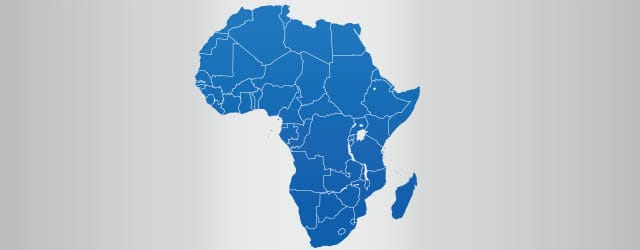No region of the world has generated an average annual growth rate of 5.5% over the past 20 years—except Africa. In sub-Saharan Africa, GDP has expanded by 40% since 2009.

Back To Supplment
The real question for Africa now is not so much about past economic performance but about what’s coming next. Growth in emerging markets is slowing and commodities prices are falling. Africa also has strong business ties with China. That’s a concern, given that the economy of the People’s Republic seems to be sputtering—if not worse.
Indeed, Africa, with more than 50 independent countries, is facing a big test ahead. But the chief economist and head of research of Standard Bank, Goolam Ballim, says it’s important to make a clear distinction between the fundamental promise of Africa and cyclical issues. The continent of one billion people has good demographics, Ballim says, with an average age of 19 years for the population. That number is closer to 30 in Asia, and even higher in other areas. Africa also boasts 20 years of macroeconomic and political reforms and a “deepening of financial markets,” he notes. And despite the remoteness of many parts of the continent, mobile banking has helped scores of countries in Africa leapfrog from a cash to a credit economy.
The strong process of urbanization, with the growth of metropolises like Johannesburg, Cairo and Nairobi, is another plus, says Ballim, from his base in Johannesburg. He also points out that the fastest-growing economies of the past 20 years were those of non-oil-producing countries like Rwanda, Tanzania, Ethiopia and Burkina Faso. Even though per capita income in those nations was low to start with, growth was more the result of serious reforms than an abundance of natural resources.
Still, many countries in Africa, like most developing nations, are likely headed for a rough patch. A repeat of the global financial contagion that erupted in in 2008 could reverse the recent gains in Africa. Trade and foreign direct investment will be the keys to limiting the damage, particularly as economies in Africa become more dependent on those in Asia. Trade between African nations, moreover, could buffer the shock waves from an economic implosion in China or the tapering of quantitative easing by the US Federal Reserve Board. And the recent signing of the Tripartite Free Trade Area agreement establishing a special economic corridor running from Cairo to Cape Town and including 26 countries—with a potential market of 625 million people—is a clear sign of where Africa is headed. There just may be a detour along the way.
Andrea Fiano



